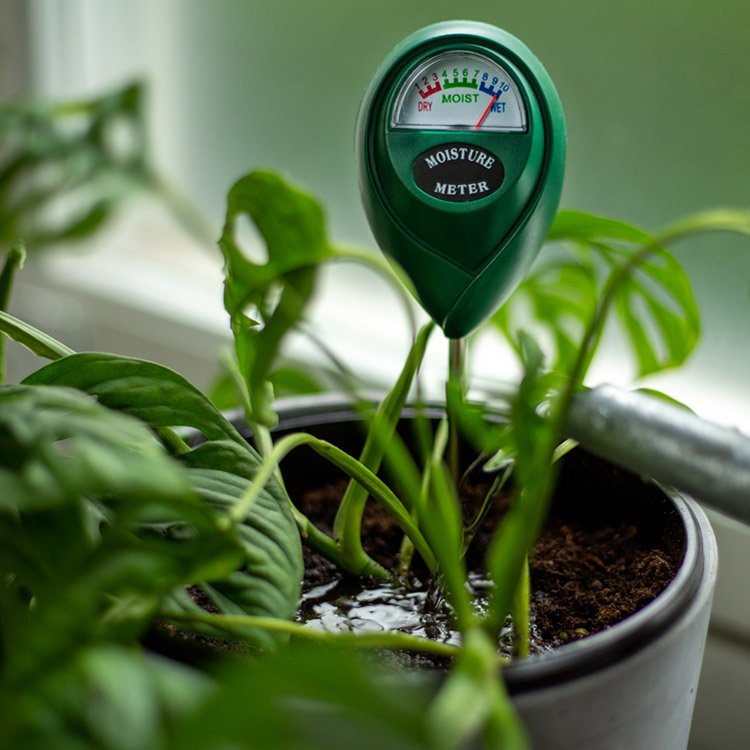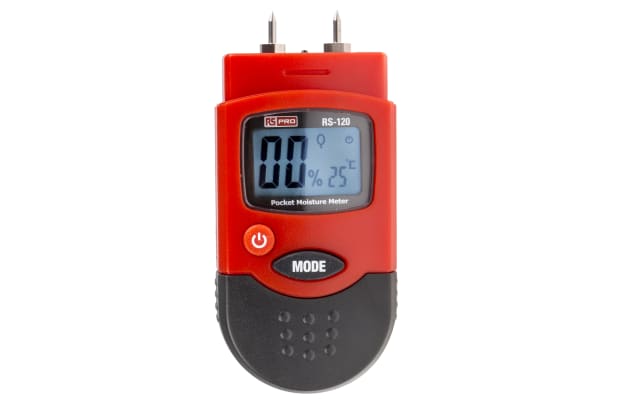The Ultimate Guide to Picking the Right Moisture Meter for Your Needs
The Ultimate Guide to Picking the Right Moisture Meter for Your Needs
Blog Article
The Ultimate Overview to Moisture Meters: A Comprehensive Summary and Exactly How They Can Save You Cash
In the realm of structure maintenance, construction, and numerous industries, the value of accurately determining wetness degrees can not be overstated. Moisture meters act as important tools in detecting and checking moisture content in products, assisting in protecting against expensive damages and guaranteeing the quality of items. Recognizing the subtleties of various kinds of moisture meters, their applications, and the prospective cost-saving benefits they use can be a game-changer for organizations and experts alike. Finding just how these gadgets can not just simplify procedures however likewise contribute to financial savings is a journey worth beginning on.
Kinds Of Moisture Meters
Different sorts of dampness meters are available for various applications in various industries. One usual kind is the pin-type moisture meter, which determines the electrical resistance in between 2 pins put into a product. This type appropriates for timber, drywall, and various other structure materials. Pinless wetness meters, on the other hand, usage electro-magnetic sensor plates to check a bigger area without creating damages to the product's surface area. These meters are perfect for rapidly assessing wetness degrees in big areas such as floorings and walls.
Furthermore, there are also specialized wetness meters developed for details materials like soil, hay, or grain. These meters provide exact wetness readings tailored to the special properties of the material being tested. Infrared moisture meters measure the thermal homes of a material to determine its wetness material non-invasively, making them beneficial for applications where pin or pinless meters might not be appropriate. Recognizing the various kinds of dampness meters available can assist markets pick one of the most proper tool for their certain moisture dimension needs.

Benefits of Utilizing Moisture Meters

Furthermore, making use of wetness meters can lead to increased energy efficiency. By identifying locations with high wetness degrees, such as leaks or bad insulation, adjustments can be made to improve energy conservation and reduce energy prices. In farming settings, wetness meters play a vital role in enhancing plant returns by making it possible for farmers to keep an eye on soil moisture degrees and make informed watering choices. Overall, the advantages of utilizing moisture meters extend throughout numerous sectors, providing affordable remedies and promoting much better quality control practices.
How to Choose the Right Moisture Meter
Selecting the suitable dampness meter involves considering crucial factors such as product compatibility, dimension range, and calibration precision. When picking a moisture meter, it's necessary to ensure that the meter appropriates for the certain product you will certainly be testing. Various materials have differing electric properties that can influence dampness readings, so picking a meter made for your material is vital for exact results. Furthermore, think about the measurement series of the moisture meter. Ensure that the meter can identify dampness levels within the variety needed for your applications. Calibration precision is another important aspect to remember (Moisture Meter). Select pop over to these guys a dampness meter with trusted calibration to ensure accurate and regular readings. Some meters might call for regular calibration adjustments, so understanding the calibration procedure is very important. By thoroughly assessing these aspects, you can select a wetness meter that meets your demands and supplies accurate dampness measurements for your projects.
Appropriate Strategies for Moisture Meter Usage
To make certain precise wetness readings and make best use of the efficiency of a wetness meter, using proper strategies is essential. When making use of a pin-type moisture meter, put the pins or probes into the material being tested till they make complete get in touch with. Ensure the pins are vertical to the surface to obtain the most exact reading. For pinless moisture meters, hold the tool flat against the product and relocate slowly to cover the entire area for an ordinary reading. It's critical to calibrate the dampness meter according to the material being checked to boost precision. Take numerous analyses across the surface area and ordinary them out for an extra trusted outcome. In addition, ensure that the product being tested is adapted to the environment to stop manipulated analyses. Normal upkeep of the dampness meter, such as cleaning the pins or sensor, is likewise essential to make sure accurate check this and regular readings. By following these proper techniques, customers can count on their wetness meter to give reliable moisture degrees, aiding in preventing expensive damage or guaranteeing quality in various applications.

Cost Cost Savings With Moisture Meter Applications
Exactly how can the tactical use of dampness meters lead to significant expense savings throughout numerous sectors? In the agriculture industry, dampness meters aid in determining the optimum time for harvesting crops, avoiding over-drying or excess dampness that can influence the final product's top quality.

In addition, in the food handling industry, moisture meters are important for keeping an eye on item top quality and ensuring conformity with safety and security regulations. By properly measuring wetness material in foodstuff, suppliers can protect against putridity, maintain quality, and reduce waste, resulting in significant price financial savings. Overall, the strategic application of wetness meters is a useful investment that can bring about substantial price reductions and boosted performance throughout numerous industries.
Final Thought
In verdict, wetness meters are useful tools for discovering and gauging moisture levels in numerous products. By making use of the right dampness meter and adhering to proper methods, individuals can effectively protect against pricey view problems created by excess moisture.
Moisture meters serve as essential tools in discovering and checking moisture material in materials, aiding in protecting against costly damages and ensuring the top quality of products. Infrared wetness meters measure the thermal homes of a material to identify its dampness material non-invasively, making them beneficial for applications where pin or pinless meters might not be suitable.Moisture meters supply important advantages in accurately evaluating and monitoring wetness degrees in varied materials and atmospheres. In agricultural settings, wetness meters play an important function in optimizing plant yields by making it possible for farmers to keep an eye on dirt dampness degrees and make notified irrigation choices.In conclusion, wetness meters are important tools for measuring and detecting moisture degrees in different products.
Report this page